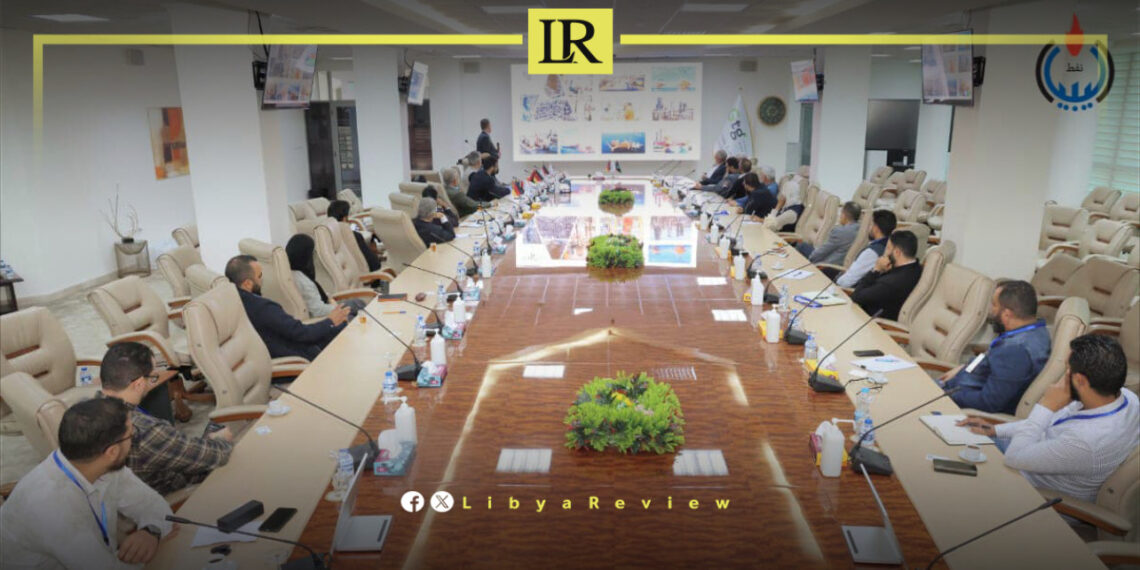The Renewable Energy Committee of Libya’s National Oil Corporation (NOC) organized a workshop in collaboration with the German company GTG to develop renewable energy projects in oil fields.
The workshop featured a detailed presentation by GTG representatives on their services in technology and technical investment. Attendees included specialists and engineers from the NOC and its subsidiaries, alongside GTG representatives.
During the workshop, GTG highlighted its core services, including technical consulting, project development, technology transfer, and investments in modern technologies. The company also demonstrated how these services could improve digital infrastructure and drive sustainable energy projects.
Discussions centered on integrating renewable energy technologies into oil fields across various regions of Libya, aiming to enhance environmental sustainability and modernize the oil sector in line with global energy advancements.
The workshop also explored future collaboration between the NOC and GTG to implement these critical projects.
Notably, the NOC recently signed an agreement with GTG to establish a solar power plant in Ubari with a capacity exceeding 600 megawatts, emphasizing its commitment to transitioning toward renewable energy solutions.
Libya has been in chaos since a NATO-backed uprising toppled longtime leader Muammar Gaddafi in 2011. The county has for years been split between rival administrations.
Libya’s economy, heavily reliant on oil, has suffered due to the ongoing conflict. The instability has led to fluctuations in oil production and prices, impacting the global oil market and Libya’s economy.
The conflict has led to a significant humanitarian crisis in Libya, with thousands of people killed, and many more displaced. Migrants and refugees using Libya as a transit point to Europe have also faced dire conditions.
The planned elections for December 2021 were delayed due to disagreements over election laws and the eligibility of certain candidates. This delay has raised concerns about the feasibility of a peaceful political transition.
Despite the ceasefire, security remains a significant concern with sporadic fighting and the presence of mercenaries and foreign fighters. The unification of the military and the removal of foreign forces are crucial challenges.


